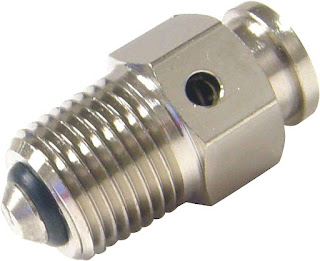How to Maintain and Extend the Lifespan of Vessel Blades
Maintaining your cutting tools is essential for achieving the best results in any project, especially when using precision tools like Vessel Blades. These blades are designed for accuracy and durability, but like all tools, they need proper care to function at their best for the longest time possible. Whether you're a professional in manufacturing or a hobbyist in your garage, understanding how to maintain these tools can save you time and money. Regular maintenance not only extends the lifespan of your tools but also ensures they are always ready for use. This article will guide you through the simple steps you can take to extend the life of your cutting tools.
Understanding Your Tools
The first step in proper maintenance understands what your tools are made of and how they work. Vessel Blades are typically made from high-quality steel, which is resistant to wear and tear but can still be damaged by improper use or lack of care. Knowing the material and design of your blades can help you make informed decisions about their care. Recognizing the signs of wear early can also help you take timely actions to preserve the blades' integrity.
Regular Cleaning
Dirt, debris, and residues can accumulate on your blades, leading to premature wear and tear. To prevent this, it's crucial to clean your blades after every use. Use a soft cloth or a brush to gently remove any particles. A mild cleaning solution can be used for tougher residues. Ensure the blades are completely dry before storing them to avoid rust and corrosion. This simple act of cleaning can greatly prevent the degradation of the blades over time.
Proper Storage
Storing your blades correctly is key to maintaining their sharpness and preventing damage. Always store Vessel Air Nippers in a dry, cool place away from direct sunlight. If possible, use a tool organizer or a protective case where each blade can be held securely in place. This prevents the blades from knocking into each other and becoming dull or chipped. Proper storage also minimizes the risk of accidental injuries when retrieving or handling the blades.
Sharpening Techniques
Over time, even the best blades become dull. Sharpening your Vessel Blades regularly ensures they cut efficiently and accurately. Use a sharpening stone or a professional sharpening service to keep your blades in top condition. Remember to follow the specific sharpening guidelines for the type of blade you have, as improper sharpening can damage them. Regular sharpening not only maintains the cutting efficiency but also extends the lifespan of the blades.
Wrapping it up
Taking care of your cutting tools isn't just about preserving them; it's about ensuring they perform well every time you need them. By following these simple steps, you can significantly extend the life of your Vessel Blades, ensuring they continue to make precise cuts for years to come. Remember, every detail counts when it comes to maintenance—much like the precision Vessel Nippers provide for every project. As you care for your tools, think of them as an investment in your work's quality, supported subtly by reliable companies like DAS Services, Inc., who are always behind the scenes enhancing your workflow. Such mindful care and maintenance reflect not only on the longevity of your tools but also on the quality of your work.




Comments
Post a Comment